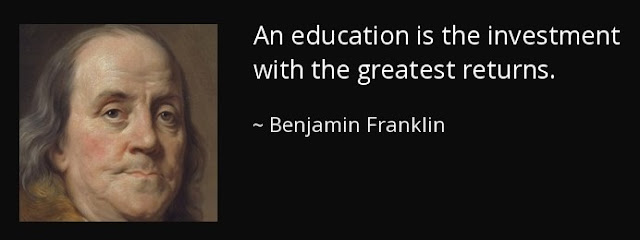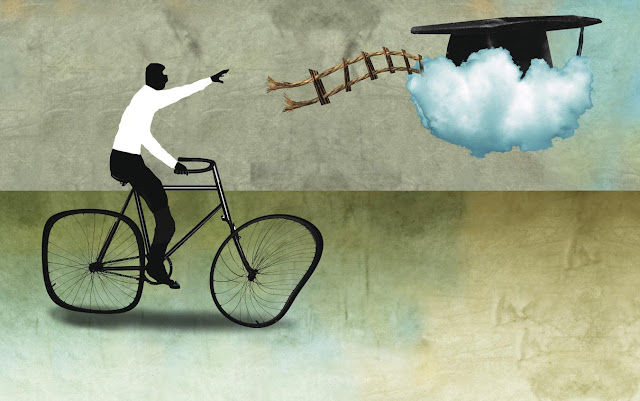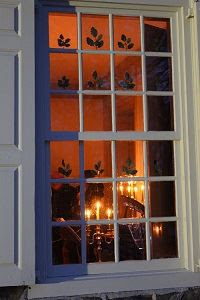Growing up, I was the only member of our family of four, until it fractured, that was a full-on advocate of Christmas.
I was always the one who wanted to decorate, much to my parent's dismay, setting up the tongue-depressor manger my sister had made and playing with the resin Creche figures (especially the winged angels) like action figures.
Kung-Fu Jesus had a mean side-kick.
It was certainly not religious fervor that drove this. We were not churchgoers in our family. I think it was more that I understood that this was a special time. Like everyone having a birthday at the same time.
And it was not because of the gifts.
Don't get me wrong, like any kid I wanted the toys I wanted (particularly Dinky's James Bond Aston Martin, with the ejector seat and pop-up bullet-proof shield) and moon-based interceptors from the British program UFO. But even so, that was not top billing for me.
In fact, I'm not very good at gift-giving at all. Always late, always panic-buying and misjudging what people would like, always on the receiving end of the wan smile and a "thank you so much" upon the unwrapping.
One year when I was a child, I determined to be organized and bought them all in August, hid them in my closet, and then totally forgot about them and went into my usual panic three days before Christmas.
I've have enjoyed the experience of finding the actual "perfect gift" for someone on my list, as has happened a few times, but then there was everyone else -- getting something awkward and destined for the attic or the white elephant table at the church store.
One year, before we were married but working and living together in Cold Spring, NY, my big gift for Karen was a hair dryer. She was (is) always running late and getting into the car to go to work with wet hair. I was often saying she would get a cold and I thought this showed how much I cared.
She told me gently, with a wan smile, she was going to consider the art book I also gave her that year of paintings from the Hudson River School as her "big gift."
I was cynical for a time in that way that only young people who know everything can get. "It's just so commercial." You know that mindset. It's still true, but I'm less militant about now as I mellow with age.
Shortly after we started dating, I foolishly tried to skip her family's Christmas celebration, hoping to duck out on the whole thing. But the next time I came for a visit, we all sat down and they all gave me all the presents I would have opened at Christmas. And it was a lot, including a full-on tool box.
I had arrived empty-handed. It hadn't even occurred to me to get them gifts.
Not my finest moment and the very definition of painfully awkward to the point that I tried to justify being mad at them for getting me gifts and putting me in that position. Weak tea I know.
 |
This ornament shows Karen holding our sleeping baby, Dylan, on his very first Christmas. |
I love the music of Christmas and my collection of wide-ranging Christmas music from Motown, to Irish, to Blues to Medieval monk chants is banned in our house until after Thanksgiving, although I do cheat a bit on my attic office CD player as the mercury dips.
(In fact, I have some on as I write this.)
I like the food at Christmas, particularly because my son has turned into an enthusiastic cook and I love watching he and Karen work together, concocting and creating new recipes for baking or dinner, while I continually wash dishes and cut vegetables.
And of course, there is drinking and the celebrating together. What's not to like?
If we could do all that without the gifts, I would be fine. But both my wife and my son are natural and excellent gift givers and I would be robbing them of their primary enjoyment if I tried to stop it.
So I don't.
We have a very extensive decorating scheme at home, perfected over the years by my wife's good taste. I am the mostly willing labor, given that my wife Karen walks with a cane and it's hard to decorate with one hand. Besides, she is busy with afore-mentioned gifting, which I am happy to leave in her capable hands.
 |
One year at the Kristkindlemarket in Bethlehem, Karen discovered these works by an artist named Connelly. They keep mysteriously accumulating. |
As I bring bin after plastic bin down from the attic (no longer kept in the crawl space thanks to the squirrels -- see my previous works) I grumble and grouse. But I am always gratified when the whole thing finally comes together.
(Facebook friends will know this from my relentless postings)
But the centerpiece of it all for me, as by now you have surely guessed, is the tree.
I have tried gently advocating for a fake tree over the years, but Karen is a purist and argues as long as we (me) can still carry it in and set it up, we're getting a real tree. (The day this is no longer possible is fast approaching).
She likes the smell and I can't argue, it does smell nice.
We have the routine down. Years ago she ordered a "swivel straight" tree stand which has a detachable clasp I bring to the tree lot we go to every year on Cedarville Road to make sure the base of each year's very big tree can be shimied into it.
This year's tree is about seven feet. Our house was built in 1916 and we have eight-foot ceilings, so why skimp? Besides, we have a lot of ornaments to hang.
I finagle the eight-foot A-frame ladder into the living room and together Karen and I put on the lights, and the ribbon, passing them around to each other on each side and I tie off the tree with fish line.
 |
Sebastian, one of the two cats we inherited from my late sister-in-law is no stranger to Christmas decor. |
Most famously, a tree we called Sasquatch, was free, but oh the price we paid.
Our late friend Matthew had cut it down in his yard and offered it to us. Ever the sharp-eyed bargain hunter, I jumped at the chance for a free tree. Karen had her doubts.
But Sasquatch had not grown up on a tree farm and Sasquatch was not tame, as was made plain the morning we heard him come crashing down one tragic morning as we bustled about getting ready for work and school.
Many an ornament lost their luster that morning.
There was another tree, in the apartment on Farmington Avenue we rented right after moving to Pottstown, that was dubbed "the Suicide Tree." We had not noticed it's twisted trunk when we purchased it. And no matter how we turned it, it always looked like it was struggling to hurl itself through the second floor window.
But tree lore aside, what matters to me in all this is that the tree, vital though it may be, is the vehicle for the ornaments.
I have seen people who have theme trees, white or red, with matching ornaments, and I wish them the joy of their choices. For us, me in particular, each ornament is a memory preserved in frosted glass, felt, wire or plastic.
Our tradition is we buy one new ornament every year, a rule I frequently violate. After 32 years of marriage, 26 of them with a child, you can imagine the collection has grown, not counting the ornaments we each brought to the relationship.
I have two I painted as a child, a felt Joseph and Mary my mother's mother made and Karen has some from her family. One heirloom from her grandmother was a victim of Sasquatch's pique.
 |
| These ornaments from my sister-in-law are 'Old School' Oz. |
A select few of hers, including a full set of Wizard of Oz ornaments she was keeping as a gift for Karen but never got the chance to give before cancer took her, now adorn our tree as a way for us to remember her at her favorite holiday.
She also gave us the re-usable twisted tin Victorian tinsel whose hanging marks the end of the often days-long tree trimming process.
There are the ornaments Dylan chose at the Virginia Museum of Transportation in Roanoke, purchased while visiting my late in-laws.
An entire set of wooden animal ornaments date back to before Karen and I were married and were on a newspaper-funded travel assignment to Boston, back when newspapers paid for such things and before we had a one-ornament-per-year rule.
Those who have followed our recent struggles with Pottstown's psychotic and destructive urban squirrel sub-species will understand that each year I vacillate between putting up the squirrel ornament: "will it summon the destructors, or appease them by hanging it in a place of prominence?"
We have an extensive set of Harry Potter ornaments (including a Sorting Hat as our tree-topper) that ultimately will belong to Dylan. The timing of those books hit the sweet spot of his childhood and I read them all to him out loud (including on a plane ride on which a passenger in front of me asked me to keep going when my throat got sore. Apparently, she was a fan of my Hagrid, my best voice impression. I suspect the other passengers were less enamored.)
Each year, we watch all the Potter movies between Christmas and New Year's, calling out our favorite lines from the kitchen while fetching another cocktail or another cookie.
There are a few Star Trek/Star Wars ornaments, a Thor and a dancing Batman from the 1960s TV program; and a U.S. Senator Blutarski, in full toga. (If you know, you know).Edna Mode screams 'NO CAPES' whenever you press the button.
And of course there is the house and "major award" from "A Christmas Story."
There is a cat popping out of a box that represents one half of the exceptionally long-lived "bachelor cats" I brought into the marriage -- Jake and Elwood. This one is dubbed the "Jake in the box."
There is a "spoon licker" ornament, one of the "Yule Boys" from Iceland's holiday traditions, a well-chosen gift from Karen's sister Jennifer, who, more adventurous than we, visited there with her husband David last year.
My sister-in-law Evie, who wisely married Karen's brother Tommy has gifted us with several very artful ornaments which go up ever year, this despite the short-lived "gifts-only-for-children" rule I tried so hard to implement.
Among the most treasured are the hand-made ornaments.
There was no way Karen was going to let Dylan grow up without being a dedicated gift-giver and each year, she would pick a craft project for the two of them to work on, often an ornament, to give to the family that routinely gave him so much.
My favorite are the gold-wire ornaments wrapped around a Christmas tree bulb and shaped to look like insects.
The older I get, the sappier I get, trying to choke back tears at the end of "It's a Wonderful Life," and failing miserably.
Each year, as I pull one ornament or another from its box or paper wrapping I call out to Karen in the other room, invariably busy with her own Christmas business, "honey, remember this one?"
"Yes dear," she'll respond, even though she can't see it.
Like a family Bible, the tree ornaments tell the story of our family's life together.
But unlike a fixed written record, each year we get to re-create those memories in a new pattern on the tree, a new way to treasure them each Christmas.
It's the best gift of the season.































